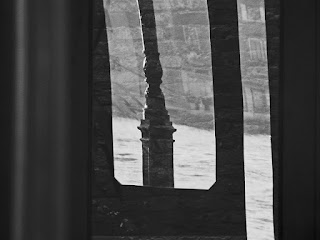A Mirage named Ayodhya
A decade ago, our home received a photo frame. It had two dogs one facing you and the other brooding over the ground. The portrait had the words, “What you focus on determines what you miss”. I was too schooled into conformity back then that education ruined my thinking. It took me many years for understanding the statement in the context of the picture. When things began to sink later the statement made more sense in many aspects of life. I found that discourse more starking in politics than anywhere else.
The Demolition of Babri Masjid on the December 6 of 1992 is one of few events which challenged the concept of India. Though India has undergone so many transformations post-liberalization the issue has not been solved. The honourable Supreme Court of India has advised, not ordered the warring litigators (those who want a mosque or a temple) to ‘settle’ the issue through ‘negotiation’. When the highest court of the country even suggests looking at an alternative route to judicially sanctioned justice it means two things. Either the case is too sensitive or the issue had already seen prolonged litigation.
"Roughly sixty percent of the Indians defecate in the open. You don’t need a better statistic for a country’s infrastructure."
The objective of the article is neither to analyse the reasons leading to demolition nor to interpret the fifth report of the Archaeological Survey of India (parties on both sides selectively interpret clauses to highlight points favourable to them. I kindly request you to Google for experiencing this appropriation). It is to show how issues of vast significance lose their visibility in the mirage of emotional and religious discourse.
The political system has a design sophistication that ignores urgent and important discussions. Roughly sixty percent of the Indians defecate in the open. You don’t need a better statistic for a country’s infrastructure. It is worsened by a deeper malaise that a specific group of people is discriminated to undertake sanitation activities in India.
Potable water in India is a luxury for most of the population. The country has one of the highest pollution levels in the world. If air’s purity was quantifiable by a carriable sniffo-meter we wouldn’t be very happy going on with our lives. A colonial administrative set up which does not cater to the needs of a vibrant democracy, healthcare which fails in the first mile, a polity which curbs speech with unreasonable (but touted as reasonable) restrictions are few of the fundamental problems which require attention.
A Crafted Illusion
Photo Courtesy: August Brill
I do not mean to brag that reforms and discussions on religion fail to produce any desirable outcome. In fact, religion is the foundation of many societies and societies cannot be transformed without reforming religion on modern lines (I mean rationality). But it is the nature of discussions on religion which makes them the mirage.
In the Book on his fighting method (Jeet Kune Do) Bruce Lee talks not about gaining but ‘losing the inessentials’. It applies fairly to all aspects of life. Religious discussions should be focussed on eliminating superstition and inculcating spirituality and peace. They lose their meaning when they shift to questions on which is a better religion and prove counter-productive when they promote violence.
It is this aspect of the mirage which makes it dangerous for the society. An individual completely alienated from the fundamental problems of the society and living in a fictional reality-show world is less of a harm than the one who is guided by the deception that winning so-called religious arguments, building mosques/temples and doctoring history are the fundamental problems.
We would not have reached a moral low without the help of our politicians who used religion only as a vote bank. They fine tune their words melodiously to swing minds from the actual problems of the day, to create a mirage that ‘something’ is more important than ‘everything’.
We don’t find the right answers as right questions are defied. Maybe we don’t want to. To quote from Dan Brown’s novel Inferno, “Denial is a critical part of the human coping mechanism. Without it, we would all wake up terrified every morning about all the ways we could die. Instead, our minds block out our existential fears by focusing on stresses we can handle—like getting to work on time or paying our taxes”. The truth is never convenient for the ruler. It is for the ruled to identify the entanglements and see beyond the mirage. Until then politics will be the same.
Photo courtesy: (External Link)




Comments
Post a Comment